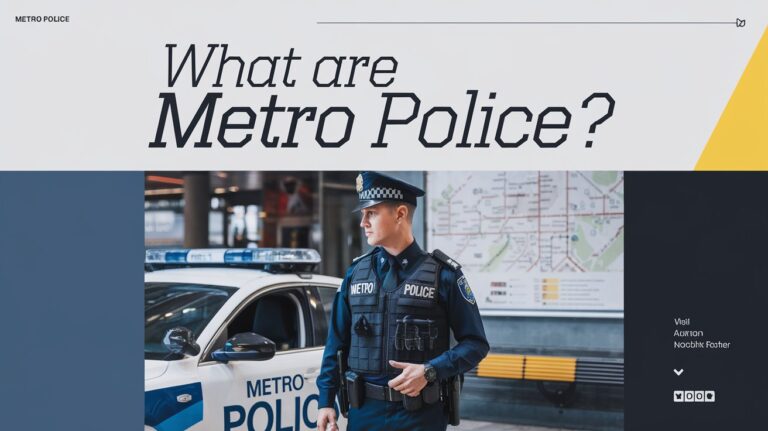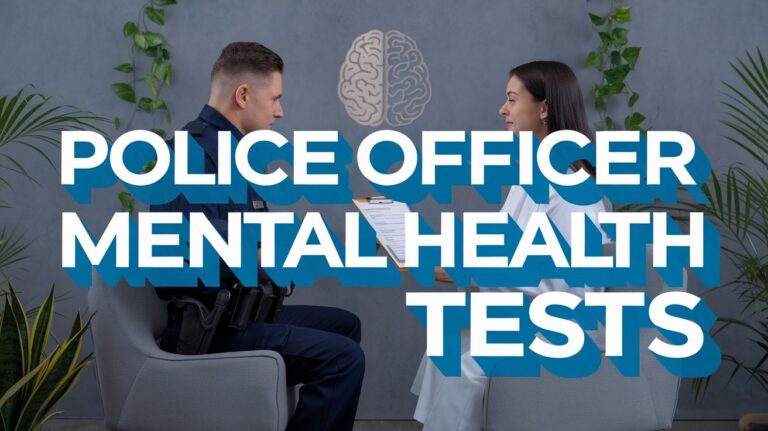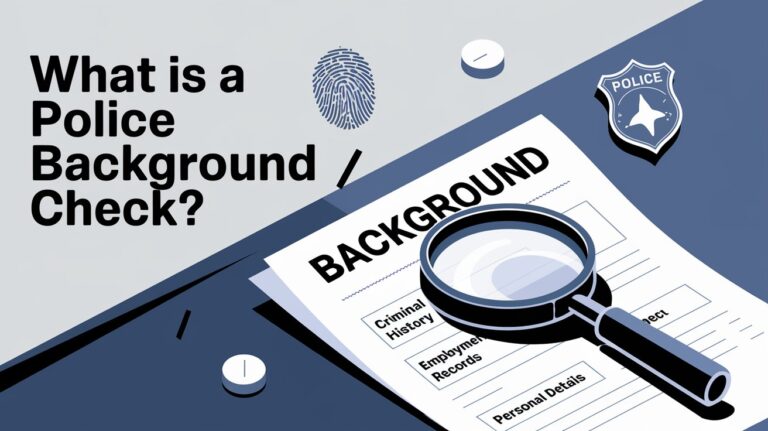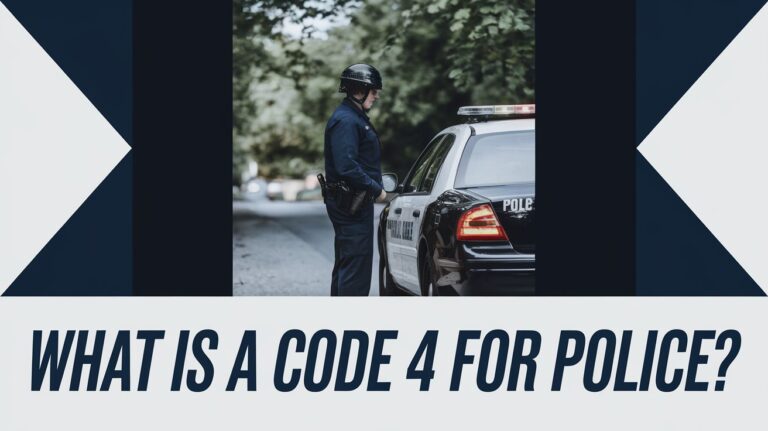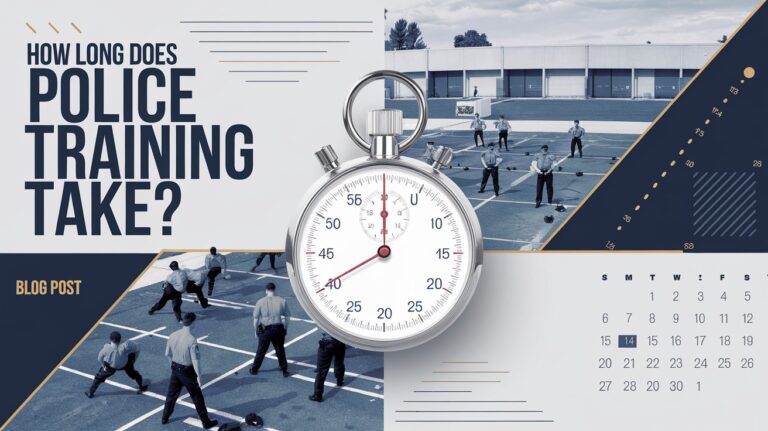Police Officer Exam Requirements: Test & Qualification Steps
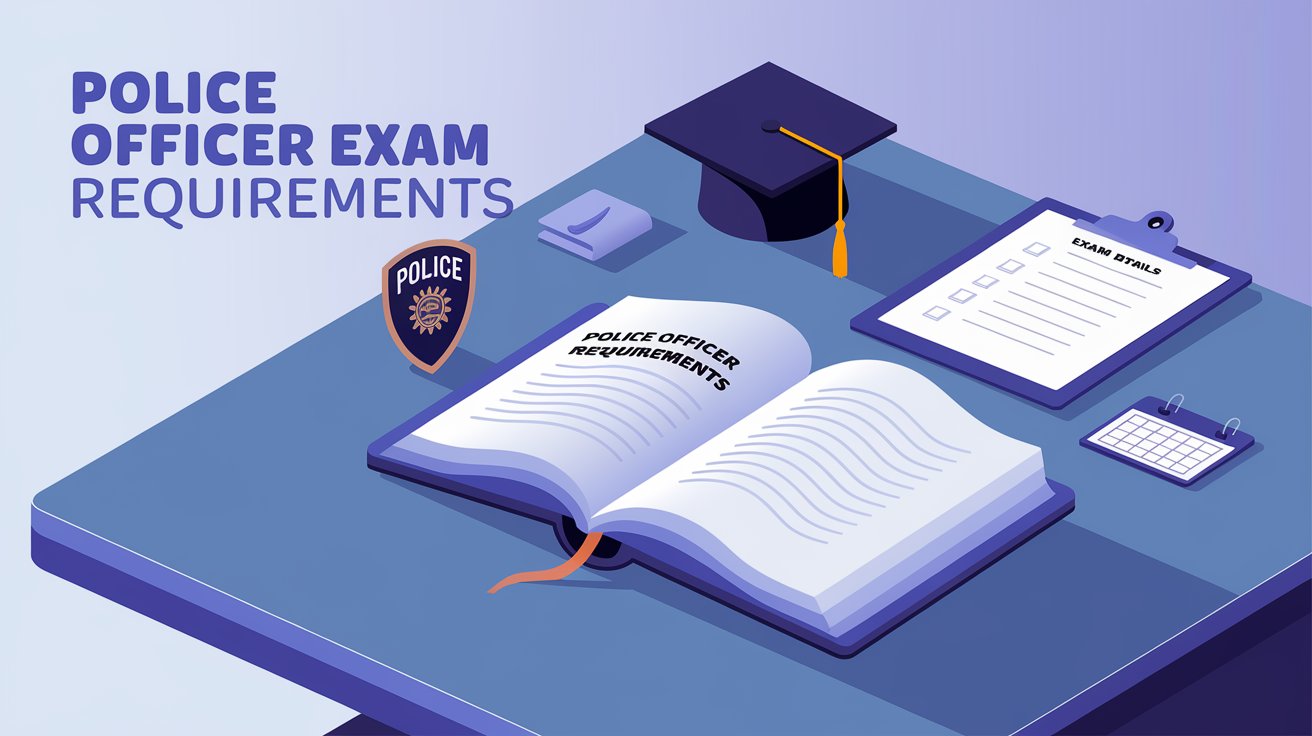
Becoming a police officer in the United States is a challenging journey. It involves a detailed selection process, ensuring only the most qualified candidates are chosen. The police officer exam is a key part of this, evaluating applicants’ suitability for law enforcement. It assesses essential skills and qualities through a comprehensive evaluation.
These exams test various competencies, such as written communication, mathematical reasoning, memory, and problem-solving. Physical fitness tests, oral board interviews, and background checks are also used. They help determine if an applicant is fit for the role.
The application and selection process for public safety roles can take months. It often takes 4-6 months, sometimes up to a year. This thorough process ensures selected individuals have the knowledge, skills, and character to serve and protect their communities effectively.
Key Takeaways
- Police officer exams evaluate a candidate’s suitability for law enforcement work, assessing essential skills and qualities.
- The exam process can take 4-6 months to complete, and in some cases, up to a year.
- Exams often include written tests, physical fitness assessments, oral board interviews, and background investigations.
- Passing the entrance exam is just one factor of eligibility to work as a police officer in the US.
- The higher the score attained in the police entrance exam, the better the chances of recruitment.
Police Officer Exam Requirements
Becoming a police officer is a rewarding yet challenging career path. Law enforcement agencies have set up rigorous exam requirements to ensure only qualified candidates are selected. These standards aim to assess an applicant’s suitability for the role’s demanding responsibilities.
Age and Citizenship Criteria
Most departments require candidates to be at least 21 years old and U.S. citizens. This minimum age requirement is based on California Government Code Sections 1029, 1031, and 1031.4. These sections outline the baseline peace officer selection standards.
Education Prerequisites
A high school diploma or GED is usually the minimum educational requirement for police officer positions. Yet, some agencies might prefer or require applicants to have college credits or a bachelor’s degree.
Driver’s License Standards
Possessing a valid driver’s license is a key requirement for police officer candidates. They must show they can operate a vehicle safely and responsibly. This skill is crucial for various law enforcement duties.
Beyond these core criteria, prospective officers may face additional requirements. They must pass a thorough background check and demonstrate good moral character. Having no felony convictions is also a must. Some departments might consider applicants with minor infractions if they have a clean record in recent years.
Written Test Components for Law Enforcement
Aspiring police officers must navigate a challenging written examination during the recruitment process. This test evaluates critical skills vital for law enforcement, such as reading comprehension, math skills, problem-solving abilities, memory retention, and observation skills.
Reading and Comprehension Assessment
The reading comprehension section tests a candidate’s ability to understand written information. It involves answering questions based on passages about police duties, laws, and procedures. Candidates must show they can grasp main ideas, identify key details, and make logical conclusions from the text.
Mathematics and Problem-Solving Skills
The mathematics section assesses the applicant’s quantitative reasoning. It includes basic arithmetic, percentages, and word problems that mimic real-world scenarios. These might involve calculating seized cash, determining bail payment percentages, or solving distance and time problems.
Memory and Observation Tests
The written test also includes memory and observation assessments. These might involve recalling details from images or videos. Candidates must demonstrate their ability to accurately remember and report observations, essential for effective law enforcement.
The written examination for law enforcement positions is a detailed assessment. It ensures candidates have the academic and analytical skills needed for the demanding role of a police officer. By excelling in these written test components, applicants can significantly advance in the competitive recruitment process.
Physical Assessment Standards
Aspiring police officers must show they are physically fit for the job’s demands. The physical fitness test is key, checking strength, cardiovascular endurance, and flexibility. It’s a vital part of the police officer exam.
Common elements of the physical fitness test include:
- Strength tests like push-ups, sit-ups, and bench press to check upper body and core strength
- A cardiovascular endurance test, usually a timed 1.5-mile run
- Flexibility assessments, which may involve obstacle courses or other agility exercises
Candidates should prepare for the physical fitness test with a balanced workout. This should include strength training, cardiovascular exercise, and flexibility work. Getting advice from a fitness professional can help create an effective training plan.
The specific requirements and scoring criteria for the physical fitness test vary by police department. Applicants should thoroughly research the department’s standards. They should then tailor their preparation to meet these standards.
Passing the physical fitness test is a crucial step in the police officer exam process. It shows the candidate is ready for the job’s physical demands. Those who fail can be disqualified but can reapply and retake the test later.
Oral Board Interview Process
The oral board interview is a crucial part of the police officer selection process. It’s where candidates show off their communication skills, judgment, and personality. They must be ready to talk about their background, why they want the job, and how they’d handle different situations.
Professional Appearance Guidelines
Making a good first impression is key in the oral board interview. Candidates should wear professional clothes, stand up straight, and make eye contact with the panel. Speaking clearly and confidently, with a genuine interest in the role, shows they’re a good fit.
Behavioral Scenario Responses
Candidates face hypothetical scenarios to test their decision-making and problem-solving skills. They need to explain their thought process, actions, and possible outcomes. Practicing answers to common questions can boost confidence and improve delivery.
Communication Skills Evaluation
Police officers must communicate well with the public, colleagues, and superiors. The panel will check if candidates can speak clearly, listen well, and answer questions effectively. Those who communicate well are more likely to succeed in the role.
| Interview Performance Scoring | Chances of Recruitment |
|---|---|
| 90-100 | Highest chances |
| 80-89 | Still have a chance |
| 70-79 | Slim chances |
The oral board interview usually lasts 30 to 50 minutes. The panel asks 6-8 questions to each candidate. Each panel member scores them from 1-9, with at least 3 members involved. Yet, 95% of applicants don’t prepare well, which greatly reduces their chances.
Background Investigation and Drug Testing
Aspiring law enforcement officers face a rigorous background check and drug screening. These steps are crucial to ensure they meet the high standards of the job. They help police departments assess an applicant’s character and integrity, vital for a career in public service.
The background check looks into an applicant’s criminal record, credit history, military service, and employment history. It also considers personal references. Certain issues, like felony convictions or financial irresponsibility, can automatically disqualify someone. Honesty is paramount, as any dishonesty can lead to immediate rejection.
Drug testing is a key part of the hiring process, often through urine analysis. Some departments also use hair follicle tests for more thorough detection. A clean record is essential, as any sign of illegal drug use or prescription abuse will likely end an application’s chances.
Police departments aim to evaluate an applicant’s judgment and ethics during these checks. Transparency and honesty are critical. Any attempt to hide or distort information will severely impact one’s chances of joining the force.
Police Academy Training Essentials
Embarking on the path to become a police officer is a demanding journey, starting with intense training at the police academy. The curriculum is crafted to arm aspiring officers with the necessary knowledge, skills, and physical conditioning. On average, recruits spend about 833 hours in the classroom over five months. They learn about criminal and traffic laws, firearms, emergency vehicle operations, physical tactics, first aid, and human behavior.
Upon completing the academy, officers enter a field training phase. Here, they work alongside seasoned officers to apply their knowledge in real-world scenarios. This probationary period, lasting one to two years, helps new officers hone their skills and adjust to the job’s demands. Some agencies require recruits to finish an approved academy course before applying. Others, like the New York Police Department, have their own training programs.
Police officers’ careers are marked by continuous education and training. Staying current with evolving law enforcement practices is essential. Officers must regularly update their skills through specialized courses, firearms qualifications, and physical fitness assessments. This ensures they can effectively serve and protect their communities.
Most Common Questions
What are the typical requirements for becoming a police officer?
To become a police officer, you must be at least 21 years old and a U.S. citizen. You also need a high school diploma or GED. Lastly, a valid driver’s license is required.
What kind of written tests are included in the police officer exam?
The written test for police officer applicants covers various areas. It includes reading comprehension, mathematics, and problem-solving. Grammar, writing skills, memory, observation, and situational judgment are also tested.
What physical fitness standards do police officer candidates need to meet?
Police officer candidates must pass physical fitness tests. These tests assess upper body strength, core strength, and cardiovascular endurance. A 1.5-mile run is often included. Obstacle courses and flexibility tests may also be part of the evaluation.
How does the oral board interview process work for police officer applicants?
The oral board interview focuses on communication skills, judgment, and personality. Applicants should be ready to discuss their background and motivation. They must also demonstrate how they would handle different scenarios. Professional appearance and clear communication are key.
What kind of background investigation and drug testing do police officer candidates undergo?
Background checks for police officer positions involve reviewing criminal records, credit history, and military service. Employment history and references are also examined. Drug testing, often through urine tests, is common. Hair follicle tests may also be used. Candidates must have a clean record and honesty is essential.
What does police academy training entail?
Police academy training is intensive, lasting around five months. It includes 833 hours of classroom instruction. Topics like law, firearms, and first aid are covered. After the academy, new officers undergo field training and a probationary period of one to two years.

